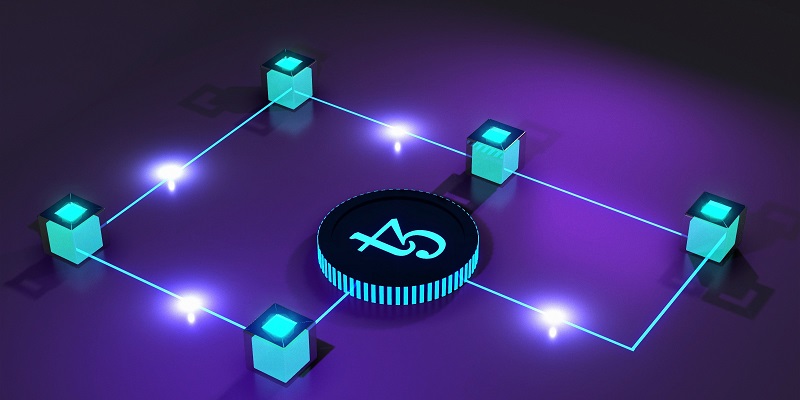Decentralized Autonomous Organizations (DAOs) and smart contracts are reshaping the financial landscape by automating trades, eliminating intermediaries, and reducing the risk of disputes. This article explores the significant impact that DAOs have on fund management, custody services, venture capital funding, and the overall transformation of traditional finance.
Understanding DAOs in the Blockchain Ecosystem
DAOs have gained prominence as powerful entities in the blockchain ecosystem. They are decentralized, autonomous entities that operate through smart contracts. These contracts automatically execute trades when predefined conditions are met, offering a transparent and efficient alternative to traditional financial systems.
Disrupting Traditional Fund Management, Custody Services, and Venture Capital Funding
DAOs have the potential to disrupt traditional fund management structures by automating investment decisions, thereby eliminating the need for traditional fund managers. Additionally, they provide secure custody services through multi-signature wallets and smart contracts, mitigating the risks of fraud and hacking. Moreover, DAOs are revolutionizing venture capital funding by offering new avenues for early-stage investments.
The Role of DAOs in Automating Investment Decisions
DAOs leverage the power of smart contracts to automate investment decisions based on the consensus of token holders. By removing human intermediaries, DAOs streamline the decision-making process, making it more efficient, transparent, and collaborative.
Eliminating Traditional Fund Managers
The automation of investment decisions through DAOs eliminates the need for traditional fund managers. Token holders collectively determine investment strategies, removing biases and potential conflicts of interest. This democratized approach ensures that investment decisions are based on consensus, increasing overall trust and transparency.
Participatory Decision-making by Token Holders
DAOs leverage the wisdom of the crowd by involving token holders in the decision-making process. Each token holder has the opportunity to contribute their opinions and expertise, collectively shaping investment strategies. Through voting mechanisms facilitated by smart contracts, token holders have a direct influence on investment decisions.
Execution of Decisions through Smart Contracts
Once investment decisions are made, smart contracts autonomously execute these decisions. This eliminates human error and ensures that the code is followed precisely. Smart contracts are transparent, immutable, and enforceable, providing a secure and efficient mechanism for executing investment strategies.
Secure Custody Without Centralized Intermediaries
DAOs utilize multi-signature wallets, where multiple key holders are required to authorize transactions. This eliminates the reliance on a single entity for custody services and significantly reduces the risk of fraudulent activities. Through the use of cryptographic protocols, multi-signature wallets provide a robust and secure custody solution.
Smart contracts play a vital role in enhancing security within DAOs. By automating custody processes, smart contracts eliminate the need for centralized intermediaries, thus reducing the risk of hacking and fraud. The immutability and transparency of smart contracts provide trust and confidence in the custody of assets.
Revolutionizing Start-up Funding through Token Sales
DAOs are transforming start-up funding through token sales or initial coin offerings (ICOs). By leveraging the power of blockchain and smart contracts, start-ups can raise funds globally without relying solely on traditional venture capital sources. This opens up new avenues for funding opportunities and allows a broader pool of investors to participate in early-stage investments.
Global Participation in Early-Stage Investments
Through DAO-facilitated token sales, investors from around the world can participate in early-stage investments without geographical limitations. This democratization of access to investment opportunities unlocks the potential for greater diversity and innovation in start-up funding. DAOs are reducing barriers and expanding the reach of investment capital.
Tokenizing Assets for New Investment Opportunities
DAOs enable the tokenization of assets, where traditional assets such as real estate, art, or commodities are represented digitally on the blockchain. This tokenization allows for fractional ownership, increased liquidity, and new investment opportunities that were previously inaccessible to the average investor. Tokenized assets brought on-chain are creating new markets and transforming the way traditional assets are traded.
Transforming TradFi
The intersection of blockchain with traditional finance, often referred to as TradFi, is rapidly changing the financial landscape. The automated and decentralized nature of DAOs (Decentralized Autonomous Organizations), along with the tokenization of assets, is challenging traditional financial institutions and practices. This transformative shift brings greater efficiency, transparency, and inclusivity to the financial world.
As decentralized autonomous organizations (DAOs) continue to evolve, they are disrupting traditional finance by automating trades, eliminating intermediaries, and increasing transparency. With automated investment decisions, secure custody facilitated by smart contracts, and the democratization of funding, DAOs are reshaping the financial industry. The tokenization of assets further expands investment opportunities and transforms traditional finance into an automated democracy. The future looks promising for DAOs and their potential to revolutionize the financial landscape.

